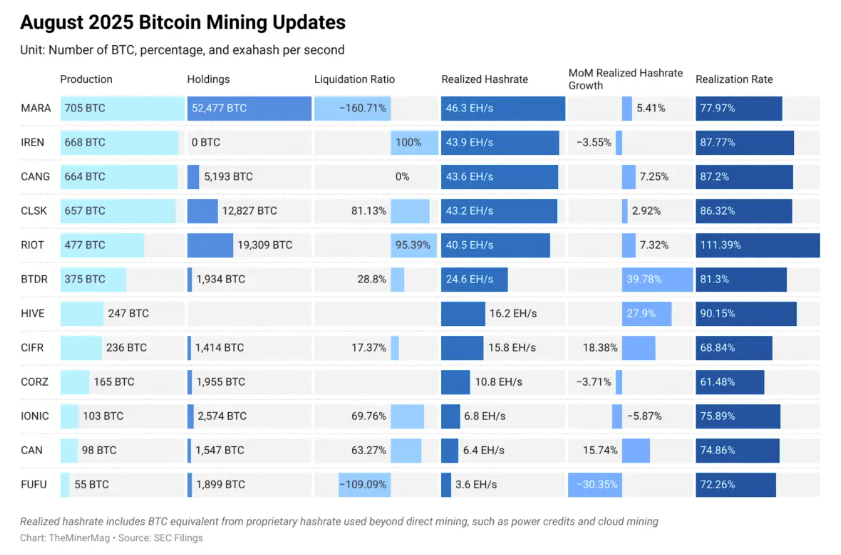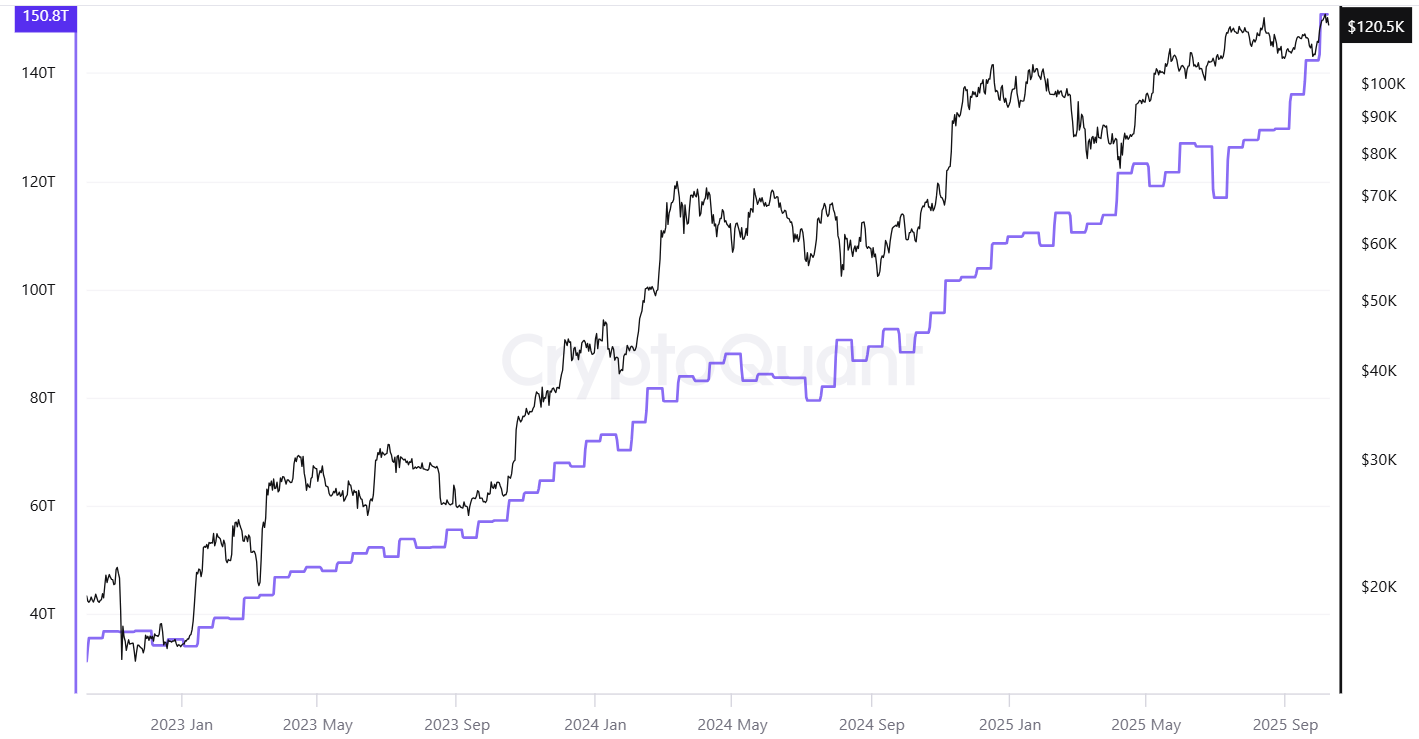
Bitdeer Technologies Group (BTDR), a company specializing in Bitcoin mining and infrastructure, is ramping up its self-mining operations in response to declining demand for mining rigs. This shift mirrors strategies employed by other hardware manufacturers who are also transitioning to in-house Bitcoin operations.
According to a report from Bloomberg dated October 9, Bitdeer is increasing its focus on mining Bitcoin (BTC) using its own equipment, positioning itself against the very clients who utilize its rigs. This report cites recent filings indicating a significant year-over-year growth in its mining capacity as of August and its ambition to join the ranks of the world’s top five Bitcoin miners.
In fact, Bitdeer is closing in on that objective by mining 375 BTC in August, placing it sixth globally, just behind companies like MARA Holdings (MARA), IREN (IREN), Cango (CANG), CleanSpark (CLSK), and Riot Platforms (RIOT), as per industry data.
 Large Bitcoin miner output levels in August. Source: The Miner Mag
Large Bitcoin miner output levels in August. Source: The Miner Mag
The Miner Mag highlights a broader trend among hardware manufacturers that are monetizing their own mining capacities to compensate for lagging rig sales. For instance, both Canaan and Bitdeer are mentioned as notable examples, with Bitdeer reportedly increasing its proprietary hashrate to 22.5 exahashes per second from December 2024 to July 2025.
“In both instances, surplus inventory that would typically be dispatched to clients is now being utilized internally,” The Miner Mag stated in its Miner Weekly newsletter that was released on September 4.
Wolfie Zhao, an analyst from The Miner Mag, expressed to Bloomberg that he anticipates, “large miners will remain cautious regarding fleet expansions for the foreseeable future.”
Bitcoin Miners Continue to Diversify Despite BTC Price Surge
As Bitcoin experiences a monumental bull rally, recently surpassing $126,000, mining economics have become more challenging, especially after the 2024 halving, which halved block rewards.
In response, many mining firms are diversifying their business models, applying hardware for new tasks including artificial intelligence and data center support. Examples of this trend include Hive Digital, IREN, and TeraWulf, all of which have ventured into AI hosting or high-performance computing offerings.
Meanwhile, Bitcoin’s network difficulty continues to rise to unprecedented levels, extending a long-standing trend of tightening margins and strenuous operational conditions for major miners.
 Bitcoin hashrate compared to price. Source: CryptoQuant
Bitcoin hashrate compared to price. Source: CryptoQuant
With soaring demand for AI computing and tech giants investing vast sums into data centers, miners are uncovering new markets by retrofitting or enhancing existing facilities for this sector. As explored in a Cointelegraph piece, some miners have also begun leasing extra capacity to AI businesses, thus creating a more dependable income stream amidst periods of cryptocurrency price fluctuations.
Magazine: Bitcoin’s long-term security budget problem: Impending crisis or FUD?


